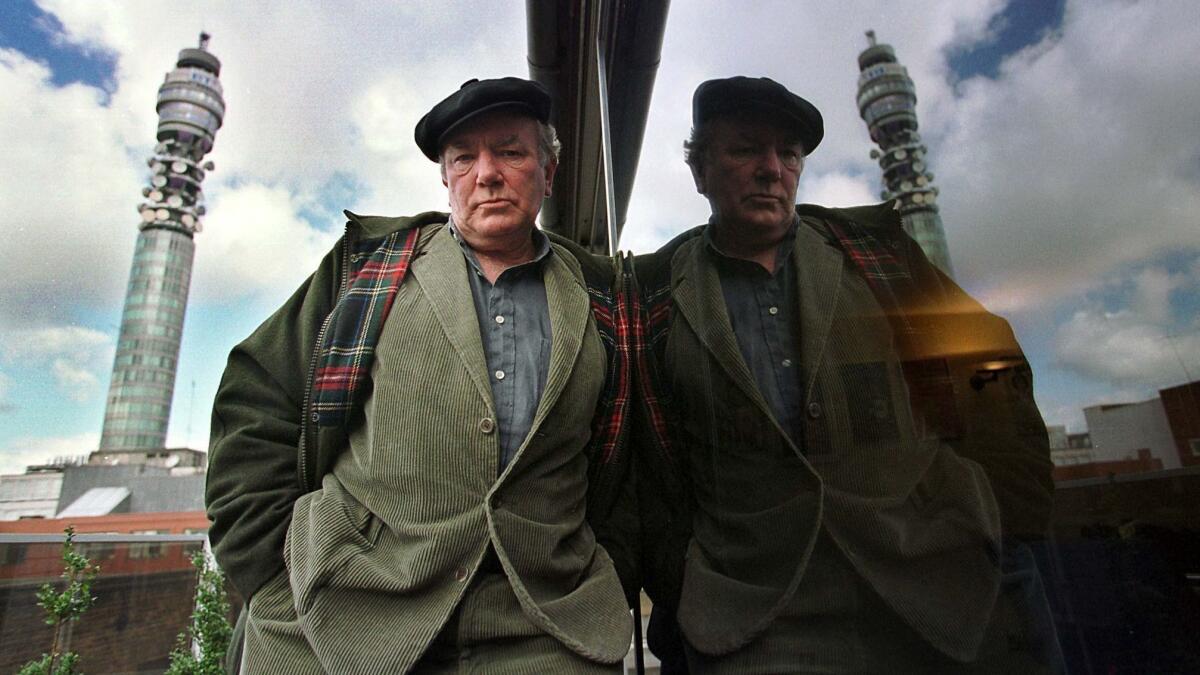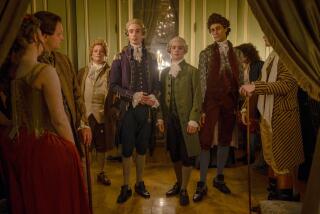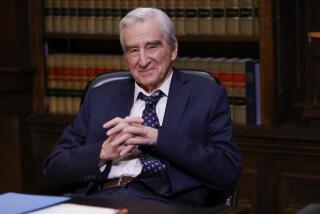From the Archives: Albert Finney recalls reuniting with his ‘Dresser’ co-star in ‘A Rather English Marriage’

Editors note: British actor Albert Finney, who died Friday at 82, enjoyed a lengthy career on stage and screen. In addition to his many film roles, he starred in TV projects including the “Masterpiece Theatre” drama “A Rather English Marriage.” Finney spoke with The Times to discuss the project and his early work. This story was originally published in The Times on Oct. 2, 1999.
Since making his remarkable starring debut in the 1960 British classic “Saturday Night and Sunday Monday,” Albert Finney has been incapable of giving a bad performance.
The 63-year-old British actor became an international superstar as the sexy rogue in the 1963 Oscar winner “Tom Jones,” for which he received his first Oscar nomination. During the last 30 years he’s starred in such film classics as “Two for the Road,” with Audrey Hepburn, and “Murder on the Orient Express,” for which he received his second Oscar nomination. He also received an Oscar nomination for his performance in the 1983 drama “The Dresser,” about an eccentric stage actor and his loyal valet.
On Sunday, he reunites with his “Dresser” co-star Tom Courtenay in the “Masterpiece Theatre” drama “A Rather English Marriage.”
Finney, who begins shooting the feature film “Delivering Milo” next week in Los Angeles, chatted about “Marriage,” Courtenay and his career at Shutters in Santa Monica.
Both you and Tom Courtenay got your start in movies in the early ‘60s. Have you been friends since then?
My first starring role in the West End was a play called “Billy Liar.” I did it for nine months and then Tom took over. We met briefly then but we didn’t become close. The nature of our business is such that you work with somebody and we all go hither and yon. When we did “The Dresser” together, that’s when we became friends.
You both starred on the London stage three years ago in “Art.” Did “A Rather English Marriage” come about because you were looking to do another project together?
Not particularly. It just panned out that way. I was the first one involved and I may have mentioned it to Tom. But it wasn’t that we deliberately set out to do that. This was just a happy chance.
You and Courtenay have a wonderful chemistry together. Why do you think you complement each other so well?
When we were doing the filming of “The Dresser,” we just sort of had an ease together when we were working. It was great. Very soon it was clear there was a tremendous sort of trust between us. It’s a very comfortable relationship, and we can discuss things quite frankly with each other.
“A Rather English Marriage” is so sweet. With your character of Reggie, how much of him came from your own ideas?
If you respond to the idea of the role and the personality of the character, then you start thinking about how he might sound. Ex-RAF pilots sort of theoretically wore mustaches, ascot scarfs and there was a certain kind of lingo, a way of talking that was supposed to be how they all were. So having a mustache was obvious, and the ascot.
It seemed, though, the war was the only time in his life when he felt alive.
That is probably true for a lot of people — the intensity of that experience. It was also dangerous and horrible and uncomfortable a lot of times, but the fact was as a fighter pilot, you were alone. In some ways he is still trapped in a boyhood of it all.
The early ‘60s must have been an amazingly creative time to work in films and theater in England.
It was. At that time we thought, that’s how it is. You don’t realize at the time that it was a very special time. In the ‘50s, suddenly novelists started to write about ordinary people in a way it seemed that hadn’t been written about before. Then dramatists did, and then there were performers who played those people, and then there were the Beatles. Things became possible for people that hadn’t seemed possible before.
Though a lot of the actors and directors from that time came to Hollywood, you didn’t after your success in “Tom Jones.” Why not?
I felt after “Tom” and “Two for the Road” that I didn’t want to go shackle myself with any sense or idea that I was a movie star. I wanted to go any way that I wanted to go and I wanted the freedom to do that.
More to Read
Only good movies
Get the Indie Focus newsletter, Mark Olsen's weekly guide to the world of cinema.
You may occasionally receive promotional content from the Los Angeles Times.











